Rotorua Airport and Air New Zealand are working to improve services amid business community gripes of “poor schedule times, frequent cancellations, and prohibitive costs”.
Their frustrations were voiced in a biannual survey that also found Rotorua businesses were feeling positive about the year ahead despite facing challenges.
The sixth Rotorua Business Pulse Report was released this week and 99 business owners, chief executives and general managers took part.
Results of the survey, run by RotoruaNZ in partnership with the Rotorua Business Chamber, were shared at an event on Thursday, including a speech by former National Government minister, Steven Joyce.
About 52% of respondents used “growth” or “recovery” in a one-word description of Rotorua, and 27% said organisational culture was what they were most positive about.
RotoruaNZ chief executive Andrew Wilson was encouraged by growing confidence, with positivity around profitability and optimism for growth in the coming year.
“The survey results highlight that our local businesses are pushing forward despite challenges, with rising organisational morale and strategic focus leading the way.”
Finding skilled staff and addressing barriers such as housing and “air connectivity” remained pressing concerns, he said, which RotoruaNZ worked to address with the business community.
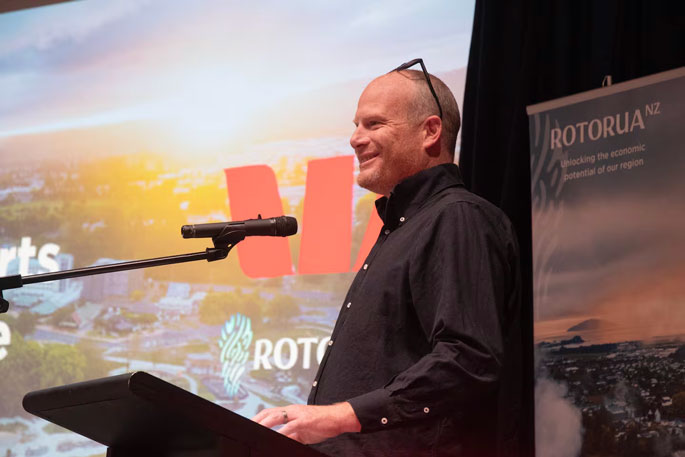 RotoruaNZ chief executive Andrew Wilson speaks on the March 2024 business survey. Photo / Laura Smith
RotoruaNZ chief executive Andrew Wilson speaks on the March 2024 business survey. Photo / Laura Smith
Business travellers’ flight gripes
Rotorua Airport travel issues were the most common theme of final, unprompted comments in the survey, the report found.
Issues reported were summarised as “poor schedule times, frequent cancellations, and prohibitive costs” being the typical reasons for choosing to use other airports.
Respondents said this was an “urgent” issue for businesses, there were limited flight options and sometimes it was better to drive to Auckland or Tauranga for flights.
Chief executive Nicole Brewer said Rotorua Airport was aware of the challenges raised in the survey and improvements were a priority.
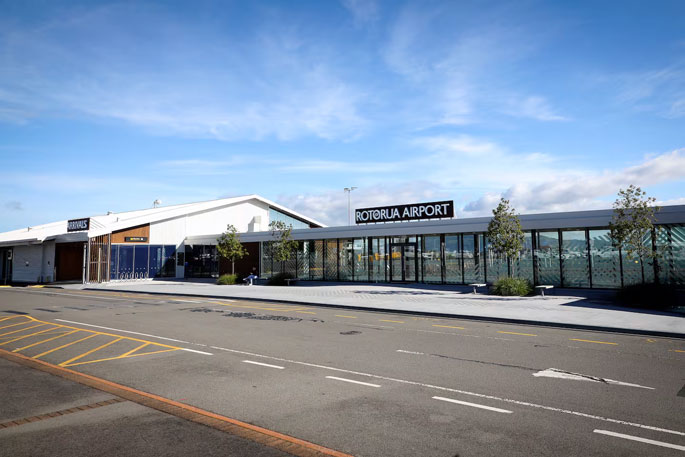 Rotorua Airport is working to address business travellers' concerns. Photo / Andrew Warner
Rotorua Airport is working to address business travellers' concerns. Photo / Andrew Warner
“We are having the right conversations with the right people, but there are complex issues involved that, unfortunately, lie outside our control.”
It had been collecting data to build a “full picture” of traveller challenges and the survey fed into that. She encouraged people to share their experiences directly to enable the airport to “champion the region through the right channels”.
“We understand that supporting businesses and the local economy requires our flight schedule to be regular and reliable, and we want to reassure our community that we are coming at this from all angles.”
Brewer said it worked with stakeholders to drive improvements in how the region was serviced.
An Air NZ statement said it was working closely with Rotorua Airport to tackle some of the challenges experienced, especially during bad weather.
Air NZ general manager domestic Scott Carr said the national carrier serviced Rotorua with up to 108 weekly flights in and out of Auckland, Wellington and Christchurch.
In the past 12 months, about 7% had been cancelled, mainly due to weather or engineering. Safety of passengers and crew was always the top priority.
“Our schedule reliability is important to us and our team is working hard at reducing the number of cancellations as we appreciate how important it is to get customers to their destination.”
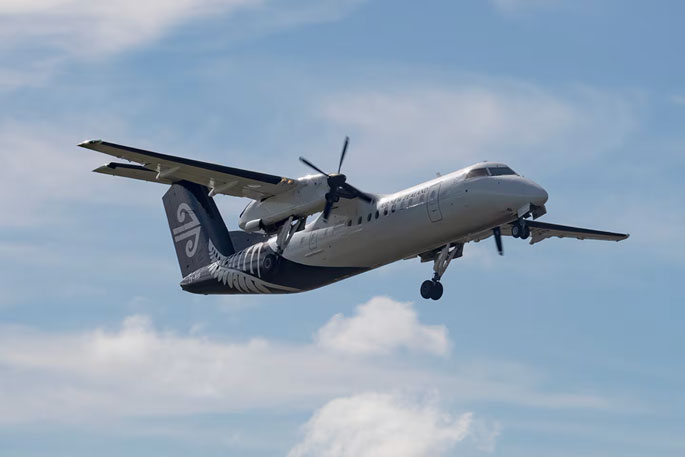 An Air New Zealand domestic flight leaves Rotorua airport. Photo / Andrew Warner
An Air New Zealand domestic flight leaves Rotorua airport. Photo / Andrew Warner
Carr said recent softening in demand for domestic flights was evident on some regional routes and Air NZ needed to “ensure its operations are financially sustainable in the medium term”.
In the past few months, and compared with the same time last year, fares had fallen 5% on Rotorua routes.
Carr thanked the Rotorua community for its patience.
Other findings
Measured for the first time in the survey, geopolitical instability was the second-ranked challenge for businesses after finding skilled workers, as tensions increase in the Middle East and with the possibility of tariffs being imposed following Donald Trump’s victory in the US election.
Nearly half of respondents said they were positive about a strong summer tourism season.
While only 1% expected business affordability to improve in a year, most (55.8%) expected business activity to increase, and for staff numbers, profitability, and investments into the business to stay the same or rise.
Rotorua Business Chamber board president Paul Ingram said the survey highlighted businesses' resilience.
“Since the March survey, a high proportion of participants have progressed business strategies, built team culture, and developed policies for carbon emissions and inclusion of Māori culture.”
Other findings included a perception Rotorua had a poor reputation and a lack of quality housing were key barriers in attracting talent.
About half the respondents rated Rotorua schools as good, but a fifth with high-school or intermediate-aged children sent them to integrated or private schools outside the district.
Steven Joyce on tech
Speaking at the launch, former finance minister and Waikato Management School Business Advisory Board chairman Steven Joyce noted the difficult market of late.
He said balance sheets had been “really smashed” over the past few years and the challenge now was to pursue growth to get those balance sheets under control.
He said New Zealand needed to look to the tech sector and encourage entrepreneurs.
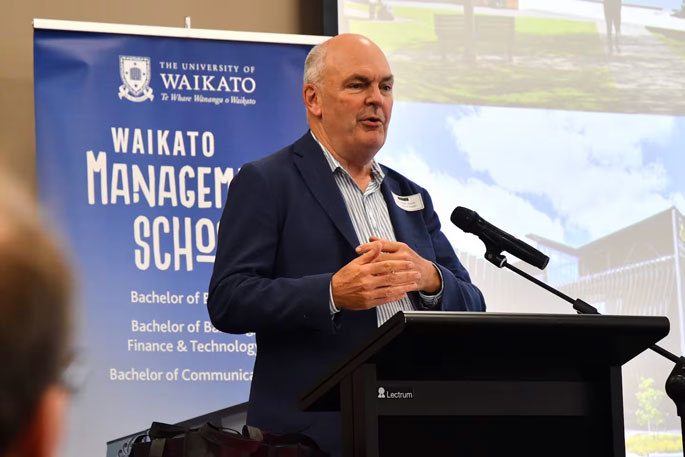 Former finance minister and Waikato Management School Business Advisory Board chairman Steven Joyce speaks in Rotorua. Photo / Laura Smith
Former finance minister and Waikato Management School Business Advisory Board chairman Steven Joyce speaks in Rotorua. Photo / Laura Smith
He referenced Kiwi success stories such as Rocket Lab founder and chief executive Sir Peter Beck - now a billionaire — who had “now spawned a second generation of entrepreneurs”, and then a third.
“That’s what I call the Silicon Valley effect … I think we need to do more to develop that, particularly in regional New Zealand.”
Additional reporting Samantha Motion
LDR is local body journalism co-funded by RNZ and NZ On Air.


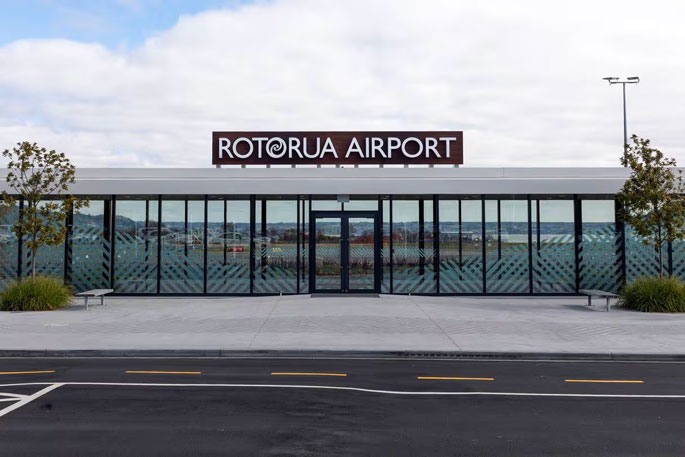

0 comments
Leave a Comment
You must be logged in to make a comment.